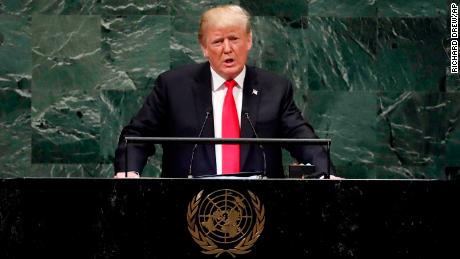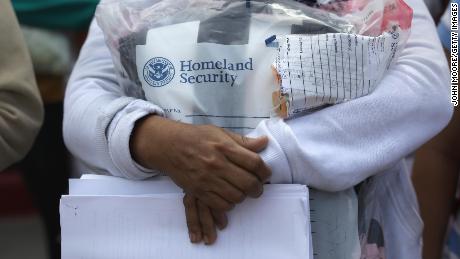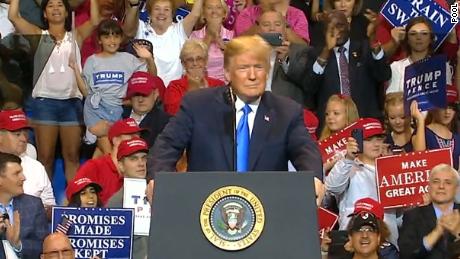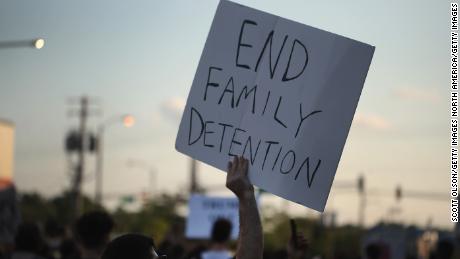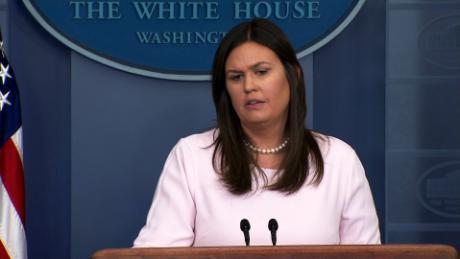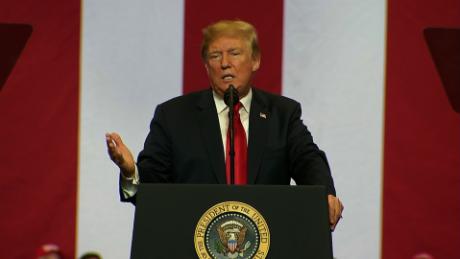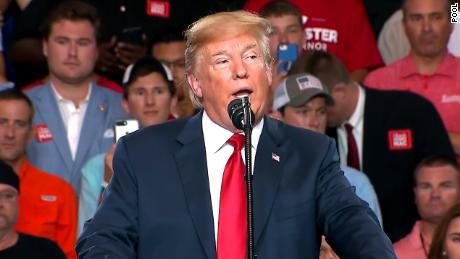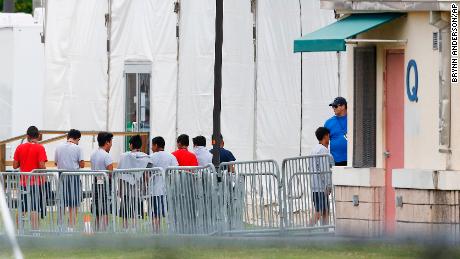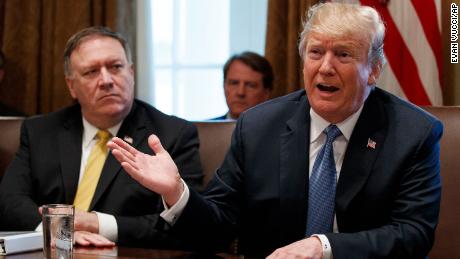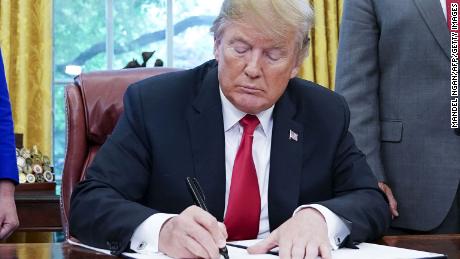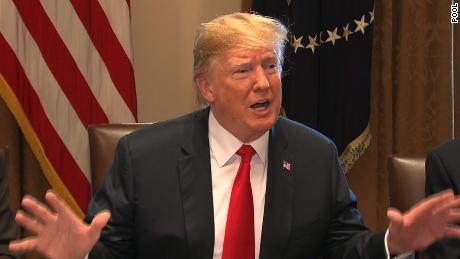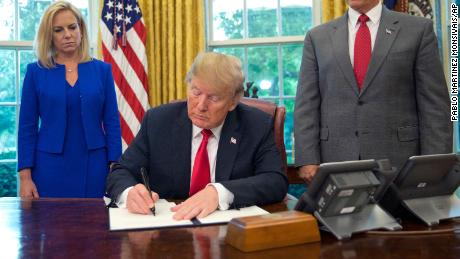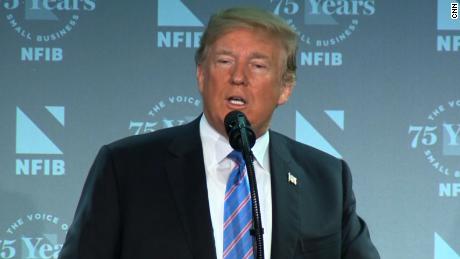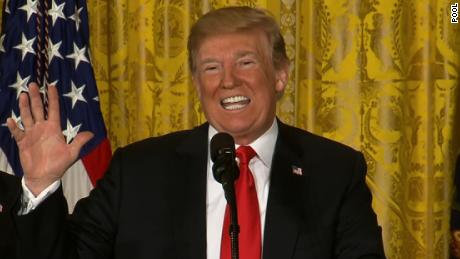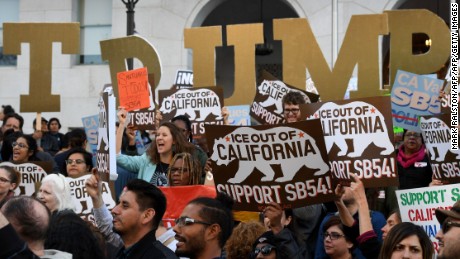Story highlights
- There is still a lot of bipartisan desire to get a deal done
- Talks are happening among rank-and-file members
Washington (CNN)There are currently two more weeks to finish everything that lawmakers want to do by the end of the year, and it's bringing a dose of reality to talks to resolve the Deferred Action for Childhood Arrivals stalemate in Congress. Here's where things stand at the end of another week.
Reality check No. 1: Time is running out
There's still bipartisan desire to get a deal done, different groups of lawmakers coming up with ideas, and members who see a common-sense compromise as attainable. What there isn't a lot of is time.
There are still some who hope a deal could get done by the end of the year, especially now that Congress has kicked the government funding deadline to December 22, but things would have to come together very quickly.
"You know how this is, when things happen, they happen fast -- or they don't happen at all," said Florida Republican Rep. Mario Diaz-Balart. "I don't think anybody's there yet, that I'm aware of, but talks are happening; that's always positive."
But the reality is that leadership hasn't really gotten to the nuts and bolts of what a last-minute deal would look like, and it could take some time to get to that point. Leadership would still need to count votes on what's doable, and gauge the pain points of what each side would have to give up. It's not impossible, but it's increasingly difficult, insiders say, especially given all the oxygen still taken up by tax reform and other negotiations on the year-end deal.
"It does feel like things are slipping, I'm starting to get really uncomfortable," said one Democratic staffer.
So: Can Dems survive until January?
The big question now is whether Democrats have backed themselves into a corner with their repeated comments that they want a DACA deal by the end of the year, which House Minority Leader Nancy Pelosi reiterated on Thursday in a news conference, saying, "We will not leave here without a DACA fix."
Democrats have left themselves some wiggle room, and could potentially try to find some sign of progress to punt the real standoff into January by extending the government funding deadline further. But it is unclear what that kind of progress would look like to give them cover with the base.
Here are two threats that illustrate the pressure leadership on both sides are under.
Illinois Democratic Rep. Luis Gutierrez, widely seen as the pulse of the immigration advocacy community, on how the Democratic base would react if Pelosi and Senate Minority Leader Chuck Schumer were to extend the debate into January: "Oh, very badly," Gutierrez said, as Arizona Democrat Rep. Raul Grijalva walked by nodding and repeating "badly."
"There'd be no tolerance. I mean, that would be an act of betrayal," Gutierrez said, noting that thousands of DACA recipients did not renew their status ahead of the March 5 deadline set by President Donald Trump and are losing their protections daily.
Schumer could likely survive in the Senate until January, but Pelosi could face an all-out revolt by the Congressional Hispanic Caucus members in a caucus already raw from the sexual harassment accusations that precipitated longtime Rep. John Conyers' resignation this week.
Here's the counterpoint: House Freedom Caucus Chairman Mark Meadows, asked about what might happen if House Speaker Paul Ryan went ahead and included DACA in a year-end spending bill, said no deal.
"No, a DACA solution will be a standalone solution. If DACA gets attached to the spending bill, there will be major, major pushback," Meadows said. "I just don't see that happening. I think the pushback will be far too costly, on a number of fronts."
Still, Meadows' counterpart atop the conservative but broader Republican Study Committee, fellow North Carolina Republican Rep. Mark Walker, said what matters most is that conservatives get their border security and interior enforcement.
"Our preference would be standalone, but we would include it in anything as long as the other border security components are on it as well," Walker said.
The biggest sticking point: Both sides think the other will cave
At the end of the day, Republicans firmly believe that Democrats will cave rather than allow a government shutdown. And Democrats firmly believe that Republicans will cave because they can't have a government shutdown when they control the House, Senate and White House.
And neither side is blinking even a little.
After a meeting at the White House that focused largely on spending caps for defense vs. non-defense spending, according to a Senate Democratic aide, both sides came out with the same talking points they had going in.
"While all agreed on the need to address the DACA population, the Republican leaders stressed the need to address border security, interior enforcement and other parts of our broken immigration system and that this should be a separate process and not used to hold hostage funding for our men and women in uniform," read a statement from House Speaker Paul Ryan and Senate Majority Leader Mitch McConnell, echoed by the White House.
"Democrats continue to press for action on the urgent, bipartisan priorities before Congress," said the Pelosi-Schumer statement, including "to pass the DREAM Act."
Asked about Pelosi saying she wouldn't leave without a fix, Sen. James Lankford, R-Oklahoma, who has been moderate on the issue in pushing for a compromise, deadpanned to reporters: "OK. This is a beautiful place at Christmas time."
But he stuck by his assessment that there simply wasn't time to get something done this year.
Rank and file taking lead
In the absence of a deal struck by leadership, moderate members in both chambers are working to develop their own compromises in the hopes that it could get full congressional buy-in.
Colorado Republican Rep. Mike Coffman said that the working group on the bipartisan Problem Solvers Caucus is "fairly close" on hammering out a deal for DACA. The group has mostly resolved what version of the DACA legislation it will go with, he said, and is now hammering out the border security piece, which Coffman said is proving "a little tougher." Coffman said the bill could be done "probably within a week, but within two weeks." The hope is that if the working group can get the full roughly 40-member caucus on board, Congress could follow suit.
And 34 Republicans ended up signing a letter to Ryan urging him to find a resolution by the end of the year.
A similar philosophy is guiding talks in the Senate between Republican Sens. Jeff Flake and Cory Gardner, and Democrats Michael Bennet and Dick Durbin. Flake says he's discussed the matter with the President and remains optimistic, though a round of finger-pointing ensued on the Senate side this week as Durbin declared an offer from Republicans Chuck Grassley, John Cornyn and others a nonstarter. Still, talks continue.
Still and always true: Trump is the wild card
There were a lot of expectations going into Thursday's meeting between the congressional big four and the White House, and the fact that no major breakthrough or stalemate emerged from the meeting elicits both regret and relief in lawmakers who weren't sure how that meeting might go.
The White House continues to be a major question for Republicans, who would prefer the President give them some cover and bless a deal in the works. At the very least, though, lawmakers would settle for confidence the President wouldn't throw a wrench in any deal progress with a negative tweet. No one knows what the President wouldn't sign, even as he continues to push for hard sells like ending family-based migration.
Meanwhile: The lobbying is at a fever pitch
DACA supporters have flooded the Hill virtually every day, and this week staged mass arrests to call attention to their cause. The business lobby has also been working hard on a deal, with Mike Bloomberg-aligned group New American Economy hosted a day of advocacy on the Hill on Wednesday and around the country that had participation from nearly 20 lawmakers as ideologically diverse as Republican New Mexico Rep. Steve Pearce, a Freedom Caucus member, and House Minority Whip Steny Hoyer.


